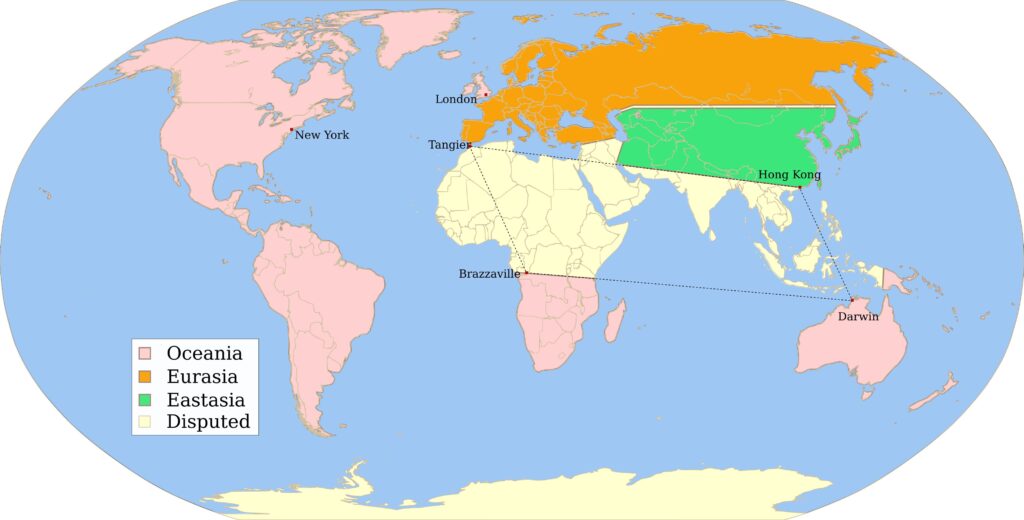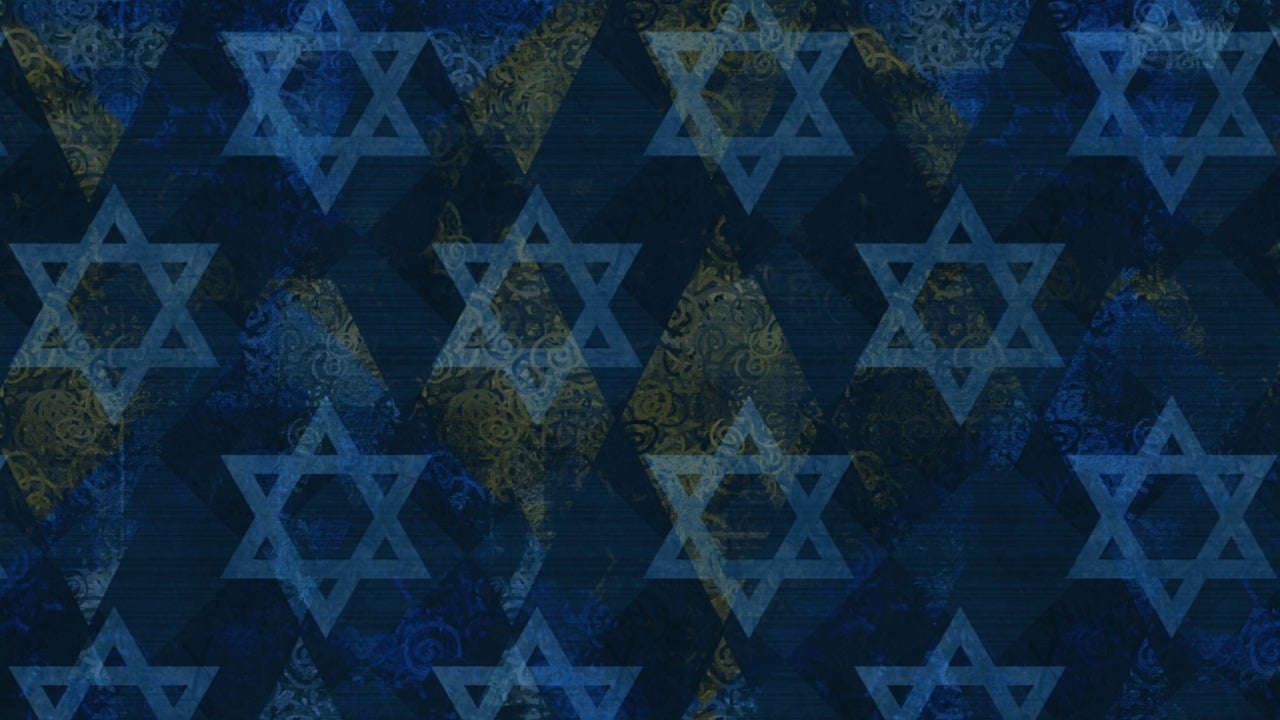Predictions by mid-20th century thinkers like James Burnham and George Orwell are materializing nearly as envisioned, with the world indeed witnessing the consolidation of power into three dominant blocs with openly totalitarian characteristics.
Trying to understand U.S. President Donald Trump’s relationship with Israel without reference to these contexts will leave one no alternative but to interpret his motives according to the comical simplifications represented by media coverage, conceived to mislead, as Orwell wrote: “Power can sometimes be won or maintained without violence, but never without fraud, because it is necessary to make use of the masses, and the masses would not cooperate if they knew that they were simply serving the purposes of a minority.”
Although the globalist vision may not be Trump’s personal agenda, a U.S. president sitting during the advanced stage of the global shift towards totalitarianism must grapple with a complex set of considerations while trying to maintain American dominance. The Cold War-era U.S.-Soviet nuclear arms race exemplifies the inherent tensions and conflicts that arise when competing for global dominance.
The Cold War nuclear arms race was characterized by a “security dilemma” where once one nation possessed nuclear weapons, it created a perceived security threat to other nations. Those nations then felt compelled to acquire their own nuclear arsenal for self-preservation, even if their initial intentions were allegedly not aggressive. This cycle of acquisition and counter-acquisition fueled a spiral of mistrust and escalation.
The fear of losing control over a potential adversary’s nuclear arsenal was paramount. If a hostile nation possessed nuclear weapons, it could potentially use them to blackmail or intimidate, or even launch a surprise first strike attack.
Acquiring one’s own arsenal was seen as a way to regain a sense of control and deter such aggression. The belief that nuclear parity, where both sides possessed roughly equal nuclear capabilities, was essential for stability.
This doctrine aimed to prevent any one nation from gaining a decisive military advantage and deterring aggression through the threat of mutually assured destruction (MAD).
During the Cold War, the ideological divide between the U.S. and the Soviet Union exacerbated fears and mistrust. Each side viewed the other as an existential threat and sought to project an image of strength and resolve through nuclear might.
In essence, the fear and mistrust generated by the possession of nuclear weapons by one nation created a compelling logic for other nations to acquire their own. Applying this logic to the capabilities and doctrines of control, surveillance, and warfare today reveals the inescapable nature of the historical and political vortex in which the nations are submerged.
Thus, although Trump may personally harbor warm sentiments towards the Jewish people and Israel, his first consideration must remain how to ensure that the United States maintains dominance among the world’s emerging managerial societies.
This report analyzes the factors contributing to this trend, examines the key characteristics of each bloc, explores the points of conflict and cooperation between them, examines the role of Russia as a wildcard with interests inimical to all three, and assesses the potential implications for the future of Israel within the context of the new global order.
BURNHAM’S MANAGERIAL REVOLUTION
In his 1941 book, The Managerial Revolution, James Burnham argued that capitalism was being replaced by a new form of collectivism, where power would be concentrated in the hands of a managerial class. This class, he believed, would eventually lead to the emergence of three global superstates, characterized by rigid hierarchies, centralized control, and suppression of individual liberty.
Here is Orwell’s 1946 summary of Burnham’s thesis: “Capitalism is disappearing, but socialism is not replacing it. What is now arising is a new kind of planned, centralized society which will be neither capitalist nor, in any accepted sense of the word, democratic. The rulers of this new society will be the people who effectively control the means of production: that is, business executives, technicians, bureaucrats, and soldiers, lumped together by Burnham under the name of ‘managers.’ These people will eliminate the old capitalistic class, crush the working class, and so organize society that all power and economic privilege remain in their own hands. Private property rights will be abolished, but common ownership will not be established. The new ‘managerial’ societies will not consist of a patchwork of small, independent states, but of great super-states grouped round the main industrial centers in Europe, Asia, and America. These super-states will fight among themselves for possession of the remaining uncaptured portions of the earth, but will probably be unable to conquer one another completely. Internally, each society will be hierarchical, with an aristocracy of talent at the top and a mass of semi-slaves at the bottom.”
ORWELL’S NINETEEN EIGHTY-FOUR
George Orwell’s dystopian novel, Nineteen Eighty-Four, published in 1949, was based in part on these analyses. In Orwell’s vision, the world is divided into three superstates: Oceania, Eurasia, and Eastasia. These states are locked in a perpetual state of war, both physical and psychological. The ruling party, known as the Party, maintains absolute control over its citizens through surveillance, propaganda, manipulating language, and secret police torture and brutality.

The rise of authoritarian regimes, the spread of misinformation, and the increasing surveillance of citizens all point to a world where individual freedoms are not sacrosanct. But rather than the envisioned Oceania, Eurasia, Eastasia division, world power blocks are consolidating among the lines of Western, Chinese, and Islamic blocs, with Russian interests that are in conflict with all three, and with Israel at the epicenter of the conflict.
The emerging superstates have both similar and varied characteristics. Following is an analysis of how the interests of NATO, Communist China, Sunni Islam, and Russia collide in the Middle East, adding Israel to the equation:
NATO
The Western or North Atlantic Treaty Organization (NATO) Bloc represents the West, a bloc of primarily democratic nations focused on collective defense and corporate fascism, according to the classic definition of the word. Though built on democratic ideals, this bloc has embraced surveillance, censorship, and suppression of dissent under the guise of security and combating “misinformation.”
NATO strengths include military and technological superiority, a strong economic base, and global influence through a vast network of alliances and institutions. Weaknesses include internal divisions, aging and decadent populations, declining global influence relative to China, declining economic dominance, and overreliance on military force.
Its ideology emerges from liberal democracy, but is increasingly challenged by internal divisions and authoritarian tendencies. Orwell called the prevailing philosophy of this bloc “English Socialism,” or, “INGSOC.” Methods of control include surveillance, censorship, economic sanctions, military alliances, and “soft power” projection, masking covert “hard power” wherever perceived necessary.
NATO interests include maintaining global dominance, isolating Russia, countering Chinese expansionism, promoting democracy and human rights, purporting to support Israel as a “strategic ally,” “key to regional stability,” and “counter-terror partner,” countering Iranian influence, containing Iran’s nuclear program, limiting regional expansion, and protecting energy interests by ensuring the flow of oil and gas from the Middle East.
NATO’s conflicting interests include maintaining the appearance of promoting stability, and preventing further conflicts and the rise of “extremist” groups, while covertly initiating and supporting same groups in order to leverage power; balancing Israeli actions by avoiding alienating Arab allies, supporting Palestinian statehood.
COMMUNIST CHINA
The Communist Chinese Bloc is dominated by an authoritarian, single-party state with rapid economic and military growth, characterized by overt authoritarianism, technological control, and aggressive expansionism using economic and informational warfare alongside traditional military might.
Its strengths include rapid economic growth, long-term strategic vision, economic power, growing military might, technological innovation (AI, 5G), and global infrastructure projects (Belt and Road Initiative). Weaknesses include human rights abuse, dependence on global trade, and internal instability.
China’s ideology is Communist authoritarianism with racist Chinese characteristics. Although in Orwell’s model, “in Eastasia it is called by a Chinese name usually translated as Death-worship, but perhaps better rendered as Obliteration of the Self,” “Death-worship” is a fitting description of Islamic ideology, as well. In 1984, the Eurasian philosophy was called “Neo-Bolshevism,” which may aptly be applied to Chinese communism as appropriately as “Obliteration of the Self.” Methods of control include technological surveillance, censorship, economic coercion, and strategic use of military power.
Chinese interests include regional hegemony, global dominance, toppling the U.S.-led world order, Taiwan annexation, access to Middle Eastern markets, energy resources, and investment, countering U.S. influence and alliances in the region, challenging U.S. dominance, and expanding global infrastructure projects and economic influence through the Belt and Road Initiative.
According to a study by the Institute for National Security Studies (INSS), Chinese companies invested in 463 projects in Israel from 2002 to December 2020. The investments include mergers and acquisitions (FDI, M&As) by Chinese companies (including from Hong Kong) in Israel.
In addition, Israel’s central bank has added Chinese yuan while slashing its dollar and euro holdings in a move to diversify its reserve allocations and lengthen its investment horizon.
Conflicting interests include destabilizing Israel by supporting Palestinian statehood and Islamic proxies while maintaining appearance of good relations, and avoiding entanglement in regional conflicts.
ISLAM
The Islamic Bloc, united by Sunni Islam, is a complex and fragmented entity, aggressively promoting its religious and political agenda on the global stage, often through non-state proxies and unconventional tactics.
Strengths include control of key energy resources, significant oil and gas reserves, regional influence, growing economic power, a large and growing population, and a powerful sense of shared identity. Weaknesses include internal divisions, sectarianism, political instability, lack of centralized authority, and an extremist proclivity.
Its ideology places strong emphasis on fascist political Islam. Methods of control are based on religious influence, cultural dominance, economic leverage, and support for non-state actors.
Interests include protecting Sunni interests in the Middle East by ensuring the security of Sunni-majority states, countering Iranian influence, promoting Islamic values on the global stage, exporting Islam to influence regional politics and international discourse.
Conflicting interests include divisions within Sunni Islam: Sectarian rivalries and political instability hinder unity. Some Sunni states have conceded to a temporary truce with Israel, while others remain staunchly opposed. All demand Palestinian statehood.
THE TRIAD
While each bloc pays lip service to the idea of a global, one-world government, each one simultaneously knows that this is not achievable:
Islam will never recognize or accept Western woke ideology or Maoism.
China is perpetrating genocide against a malignant Muslim ethnic minority, and will never accept Islamic fundamentalism or decadent wokeism.
Western totalitarian democrats will never accept Islam, and while they currently woo the Chinese (pun unintended), this is nothing more than another form of the same strategy being pursued by all three hegemons, namely, to establish alliances and exploit weaknesses until some decisive opportunity presents, then “a sudden stroke of treachery” that will supposedly bring the conflict to an end, but in reality, perpetual war will stabilize each totalitarian superstate and all three will prop each other up as self-contained universes of tyranny.
RUSSIA AS THE WILDCARD
Russia is a declining power with a nuclear arsenal, vast natural resources, and a history of geopolitical maneuvering. Its strengths include nuclear deterrence, energy resources, cyberwarfare capabilities, and experienced, ruthless intelligence services. Weaknesses include a stagnant economy, demographic decline, internal repression, and international isolation.
Russia’s interests are to reassert global influence, undermine NATO, destabilize Western democracies, exploit divisions among the other powers, and counter U.S. influence.
Russia constantly seeks to exploit Middle East regional tensions to gain leverage in the region. Protecting its naval base in Syria is key to maintaining a strategic foothold in the Mediterranean. Russia’s energy interests lead it to seek energy deals with Middle Eastern producers.
Conflicting interests include Russian competition with U.S. influence, seeking to undermine U.S. alliances and project its own power. Relations with Israel are in great part determined by Russia’s relationship with Syria.
Points of conflict include the South China Sea, a major flashpoint, with competing territorial claims and freedom of navigation disputes between China and NATO allies. Another point of conflict is Taiwan, with China’s claim comprising a core national interest, potentially leading to military conflict with the U.S.
In the Middle East, Sunni powers compete for influence with Iran, with proxy wars and regional instability. Cyberwarfare is a constant battleground, with states and non-state actors engaging in espionage, sabotage, and disinformation campaigns. There is constant competition for access to critical resources like energy and rare earth minerals.
Russia seeks to exacerbate tensions between NATO and China, supplying weapons to both sides.
Russia disrupts critical infrastructure in NATO and Chinese territories, sowing chaos and undermining confidence.
Russia spreads propaganda and disinformation to sow discord and manipulate public opinion in target countries.
Russia exploits its nuclear arsenal to deter intervention in its regional ambitions.
FREEDOM IS SLAVERY
Several key factors have contributed to the emergence of these dominant blocs:
- – Globalization and Interdependence: While purported to promote cooperation, globalization has created vulnerabilities and dependencies that are exploited by powerful states.
- – Technological Advances: The rise of the internet, AI, and big data has enabled unprecedented levels of surveillance, censorship, and propaganda, empowering the governments and corporations that control these technologies.
- – Erosion of Democratic Institutions: Declining trust in traditional institutions, especially the judiciary and police powers of the state, coupled with rising populism and nationalism, has created a pretext for authoritarianism and centralized control.
- – Rise of Non-State Actors: From terrorist groups to transnational crime organizations, non-state actors exploit the gaps between states and challenge traditional notions of sovereignty.
- – Shifting Global Power Dynamics: The decline of U.S. hegemony and the rise of China has created a multipolar world order characterized by competition and instability.
In these contexts, the emergence of three global superstates manifests in a more nuanced and insidious manner. Instead of overt military conquest, the struggle for global dominance is unfolding through a combination of economic warfare, cyberattacks, information manipulation, and exploiting social and political divisions, forcing nations to adopt totalitarianism and, in the case of smaller nations, align themselves under the protection of one of the superpowers to maintain stability.
For example, manipulating social media platforms to spread disinformation and foment unrest, exploiting economic interdependence for political leverage, and using cyberattacks to disrupt critical infrastructure are all employed by all players to weaken adversaries and gain strategic advantage, forcing adversaries into an ever-tighter straightjacket of government control over their own citizens.
Thus, the struggle for global influence involves not only military might, but also manipulating information, exploiting vulnerabilities, and eroding democratic institutions, for the professed purpose of protecting freedom and democracy.
WAR IS PEACE
Burnham and Orwell, writing in the aftermath of World War II, envisioned a world divided by overt military conflict and ideological struggle.
However, incorporating insights from modern Chinese military strategy as outlined in “Unrestricted Warfare,” a controversial 1999 treatise by two People’s Liberation Army colonels, and USAF Brig. Gen. (ret.) Robert Spalding’s commentary on it, entitled “War Without Rules,” alongside Noam Chomsky’s analysis of “manufacturing consent” and the “technology of propaganda,” reveals a contemporary landscape where the lines between traditional warfare and subtle, insidious forms of control are demolished.
Unrestricted Warfare posits a broader spectrum of warfare, encompassing not only military force but also economic, technological, and informational domains directed primarily against civilian populations. This “fourth-generation warfare” emphasizes exploiting an adversary’s vulnerabilities through unconventional means, including cyberattacks, economic coercion, and manipulation of information.
Spalding, in his book War Without Rules, echoes these concerns, arguing that contemporary conflicts increasingly involve non-military actors, blurring the lines between war and peace, combatant and civilian. He highlights the use of covert operations, cyberattacks, and propaganda to achieve political objectives, often without resorting to traditional military force. These tactics, he argues, are employed to weaken adversaries, undermine their institutions, and ultimately achieve dominance without direct confrontation.
Echoing Orwell’s description of the constantly shifting alliances between the superstates, China’s colonels in Chapter Two of Unrestricted Warfare confirm: “A country that yesterday was an adversary is in the process of becoming a current partner today, while a country that once was an ally will perhaps be met on the battlefield at the next outbreak of war…. All of this serves to again confirm that old saying: ‘all friendship is in flux; self-interest is the only constant.’”
IGNORANCE IS STRENGTH
Chomsky’s analysis of “manufacturing consent” provides a crucial framework for understanding how these unconventional warfare tactics function. He argues that powerful elites use propaganda and manipulation of information to shape public opinion and maintain their dominance. The “technology of propaganda,” he explains, involves techniques such as framing, selective reporting, and the creation of “manufactured consent” to control public discourse and suppress dissent.
Chomsky says the basic line is that “the general population are ‘ignorant and meddlesome outsiders.’ We have to keep them out of the public arena because they are too stupid, and if they get involved they will just make trouble. Their job is to be ‘spectators,’ not ‘participants.’ They are allowed to vote every once in a while, pick out one of us smart guys. But then they are supposed to go home and do something else like watch football or whatever it may be. But the ‘ignorant and meddlesome outsiders’ have to be observers, not participants.”
Chomsky presents the history: “The first World War was the first time that highly organized state propaganda institutions were developed. The British had a Ministry of Information, and they really needed it because they had to get the U.S. into the war or else they were in bad trouble. The Ministry of Information was mainly geared to sending propaganda, including fabrications about ‘Hun’ atrocities, and so on. They were targeting American intellectuals on the reasonable assumption that these are the people who are most gullible and most likely to believe propaganda. They are also the ones that disseminate it through their own system. So it was mostly geared to American intellectuals, and it worked very well. The British Ministry of Information documents (a lot have been released) show their goal was, as they put it, to control the thought of the entire world – which was a minor goal – but mainly the U.S. They didn’t care much what people thought in India. This Ministry of Information was extremely successful in deluding leading American intellectuals, and was very proud of that. Properly so, it saved their lives. They would probably have lost the first World War otherwise.
“In the U.S. there was a counterpart. Woodrow Wilson was elected in 1916 on an anti-war platform. The U.S. was a very pacifist country. It has always been. People don’t want to go fight foreign wars. The country was very much opposed to the first World War, and Wilson was, in fact, elected on an anti-war position. ‘Peace without victory’ was the slogan. But he decided to go to war. So the question was, how do you get a pacifist population to become raving anti-German lunatics so they want to go kill all the Germans? That requires propaganda. So they set up the first and really only major state propaganda agency in U.S. history. The Committee on Public Information, it was called (nice Orwellian title); it was also called the Creel Commission. The guy who ran it was named Creel. The task of this commission was to propagandize the population into jingoist hysteria. It worked incredibly well. Within a few months the U.S. was able to go to war.
“A lot of people were impressed by these achievements. One person impressed, and this had some implications for the future, was Hitler. He concluded, with some justification, that Germany lost the first World War because it lost the propaganda battle. They could not begin to compete with British and American propaganda, which absolutely overwhelmed them. He pledged that next time around they’ll have their own propaganda system, which they did during the second World War.”
“More important for us, the American business community was also very impressed with the propaganda effort. They had a problem at that time. The country was becoming formally more democratic. A lot more people were able to vote and that sort of thing. The country was becoming wealthier and more people could participate and a lot of new immigrants were coming in, and so on. So what do you do? It’s going to be harder to run things as a private club.
“Therefore, obviously, you have to control what people think. There had been public relations specialists, but there was never a public relations industry. There was a guy hired to make Rockefeller’s image look prettier and that sort of thing. But the huge public relations industry, which is a U.S. invention and a monstrous industry, came out of the first World War. The leading figures were people in the Creel Commission. In fact, the main one, Edward Bernays, comes right out of the Creel Commission. He has a book that came out a few years afterwards called Propaganda, which became kind of a manual for the rising Public Relations industry, in which he was a prominent figure. The term ‘propaganda,’ incidentally, did not have negative connotations in those days.
“It was during the second World War that the term became taboo because it was connected with Germany and all those bad things. But in this period, the term ‘propaganda’ just meant information or something like that.
“So he wrote a book called Propaganda in the late 1920s. He explains that he is applying the lessons of the first World War. The propaganda system of the first World War and this commission that he was part of showed, he says, that it is possible to ‘regiment the public mind every bit as much as an army regiments their bodies.’ These new techniques of regimentation of minds, he said, had to be used by the ‘intelligent minorities’ in order to make sure that the slobs stay on the right course. We can do it now because we have these new techniques…
“Another member of the Creel Commission was Walter Lippmann … He was, again, applying the lessons of propaganda very explicitly. He says there is a new art in democracy called ‘manufacture of consent.’ That is his phrase… So, he says, there is this new art in the practice of democracy, ‘manufacture of consent.’ By manufacturing consent, you can overcome the fact that formally a lot of people have the right to vote. We can make it irrelevant because we can manufacture consent and make sure that their choices and attitudes will be structured in such a way that they will do what we tell them, even if they have a formal way to participate.” [emphasis added]
ENTER U.S. PRESIDENT DONALD TRUMP
As Orwell wrote in 1946: “For quite fifty years past the general drift has almost certainly been toward oligarchy. The ever-increasing concentration of industrial and financial power; the diminishing importance of the individual capitalist or shareholder, and the growth of the new ‘managerial’ class of scientists, technicians, and bureaucrats; the weakness of the proletariat against the centralized state; the increasing helplessness of small countries against big ones; the decay of representative institutions and the appearance of one-party régimes based on police terrorism, faked plebiscites, etc.: all these things seem to point in the same direction.”
“Larry Ellison predicts rise of the modern surveillance state where ‘citizens will be on their best behavior’,” reads the Fortune headline. “George Orwell’s 1984 warned of a future where Big Brother watches every move,” reads the article. “Today, modern technology is making that vision a reality, and Oracle founder Larry Ellison—the world’s second-richest person—sees a growing opportunity for his company to help authorities analyze real-time data from millions of surveillance cameras.
“’Citizens will be on their best behavior, because we’re constantly recording and reporting everything that is going on,’ Ellison said in an hour-long Q&A during Oracle’s Financial Analyst Meeting last week.”
“The world Ellison described sounds eerily similar to China’s social credit system, which controls citizens’ behavior through a network of cameras using some of the world’s most advanced facial recognition software to surveil their populace.”
Although his rhetoric is nationalist, Trump has surrounded himself with globalists who understand the reality in which they live.
Regarding Israel, as noted, statements by American, Saudi, Emirati, and Israeli officials indicate that the broader Middle East strategy, that has for the past thirty years been implemented by Binyamin Netanyahu and is now in its execution stage, aims to abolish the State of Israel as we conceive it, and create in its place a democratic State of Israel & Palestine, where all citizens have equal rights, and there are no first- and second-class citizens, as implied by the Law of Return and identification as a “Jewish State.”
While Jews and friends of Israel continue to praise the Abraham Accords, statements by a UAE ambassador and Jared Kushner himself indicate that the goal of the Accords is to prevent Israeli annexation of Judea and Samaria, and pave the way for Palestinian statehood.
THE DAY THE IDF STOOD STILL
President Trump’s Special Envoy to the Middle East Steve Witkoff said that the hostage and ceasefire deal that went into effect between Israel and the Hamas Islamic organization is a step towards a normalization deal between Israel and Saudi Arabia.
As noted, President Trump’s Abraham Accords are a series of treaties normalizing diplomatic relations between Israel, the United Arab Emirates, Bahrain, Sudan, and Morocco, facilitated by the U.S. administration between August and December, 2020.
The new entity in the process of formation will be neither free nor independent, but rather part of a Middle Eastern Union dominated by Saudi Arabia, the United Arab Emirates, and later, Egypt, much as the European Union is dominated by Germany, France, and Italy. Military, judiciary, and law enforcement will be jointly administered by Israeli and Palestinian committees, responsible to a supranational assembly and Middle East Court of Justice.
Evolving from the current District Coordinating Office (DCO) liaison arrangement that Israel agreed to in the Oslo Accords, Israeli and Palestinian police and armed forces will be combined into multinational units, with one justice system. This would mean that “Israel” would have to obtain Saudi approval to use its forces on a national basis.
Witkoff continued discussing the emerging arrangement with Saudi Arabia: “I think that normalization is an amazing opportunity for the region. It’s basically the beginning of the end of war. The beginning of the end of war means that the entire region becomes investable, it becomes financeable. Banks do not have to underwrite whether the Houthis, Hezbollah, or Hamas is going to fire a missile and take down a hyperscale data center. So I think that normalization is huge for the State of Israel, it’s huge for the region, and hopefully it happens.”
THE ABRAHAM ACCORDS: A TROJAN HORSE FOR THE END OF THE JEWISH STATE
Many Israelis believe that those leading the nation and conducting hostage negotiations on its behalf are the very same ones responsible for ordering the IDF to stand down for eight hours, facilitating the hostage capture in the first place.
As evidence, they recall that:
- – Numerous government reports predicted the October 7th Simchat Torah attacks,
- – while independent and official experts issued similar reports.
- – Direct warnings were submitted by foreign governments, Israeli intelligence officers, and forward observers in the field of specific attack plans, months in advance.
- – Infiltrations using airborne craft as weapons were allowed by Israel to continue for five years.
- – Israel had prior knowledge of training for the attacks,
- – and enemy combatants were under surveillance beforehand.
- – Israel disabled its security apparatus immediately prior to the attacks,
- – domain names advertised the attacks,
- – and there was ample prior knowledge of the attacks among Gaza’s “civilians.”
- – Caucasian military advisors were deployed among the attackers,
- – and Israeli officials admitted that this was no surprise.
Israel’s role comes into sharper focus in the context of this report’s analysis. October 7th was conceived to propel Israelis into the war hysteria necessary for them to unwittingly commit their army as a forward shock troop for the global new world order.
Israeli boys are fighting, getting maimed, and dying to clear out Shia entrenchment to make the Middle East safe for Saudi and American financial interests. This is the meaning of Israeli campaigns in Gaza, Lebanon, Iraq, Syria, Yemen, and elsewhere.
This is the function of U.S. President Donald Trump’s Abraham Accords.





